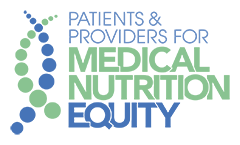As a nutrition expert, it should be up to me, the family and the healthcare team to decide on how best to treat these children and if nutrition is the ideal treatment, then it should be included as part of the child’s covered treatments. It is frustrating to have to delay or change care if nutrition therapy is not covered. This can worsen illness and also cause undue stress and harm to the child and their family.
Read moreProvider Stories
Tyler, MD from Idaho
I am a pediatric gastroenterologist and treat children with a variety of digestive conditions that require medical nutrition. I often see patients whose digestive conditions mandate that they be on special diets or supplements and yet these diets cannot be
Read moreCaroline, RD
As a provider, I know what is best for these patients and when covered, the results (i.e. improved absorption, reduced eosinophils, improved growth and weight gain) are nothing short of incredible.
Read moreVikram Christian, MD
As a pediatric gastroenterologist, I take care of children with diseases of the digestive tract. Medical nutrition is often the treatment of choice for these conditions. Insurance denial is particularly frustrating in the case of a motivated child who intends to consume the prescribed nutrition by mouth but is told that he/she would require a feeding tube to have this therapy covered by insurance.
Read moreSue, Michigan Dietitian
When patients’ mental health deteriorates because they cannot follow their diet, they often lose their job and get incredibly frustrated with the system.
Read moreAshley, Utah Metabolic Nurse Practitioner
Our clinic’s desire to bring the best possible care and outcomes to our patients is directly related to their ability to get necessary medical foods. Many who are not able to get medical foods are not able to follow their restricted diets, leading to poor outcomes and disease associated morbidities.
Read moreSarah, Washington DC Nurse Practitioner
A young couple with a child with PKU in my care made the difficult decision to move to another state and region where they would be able to depend on full medical food and formula coverage and to afford the cost of just one child with PKU.
Read moreJennifer, Idaho Dietitian
My biggest frustration with the lack of coverage of medical foods is that these are NOT foods like those that we purchase from our grocer, they ARE medical treatments just like medications. The party with the condition CANNOT be healthy without them in the exact same manner that a person with diabetes type 1 cannot live without insulin.
Read moreStephanie, Florida Dietitian
The biggest frustration as a provider is knowing that many patients are not receiving the care they need to manage their conditions. The second biggest frustration is that even when an insurance “covers” medical foods, it may still not be obtainable since many ‘in-network’ distributors will not supply the needed products.
Read more